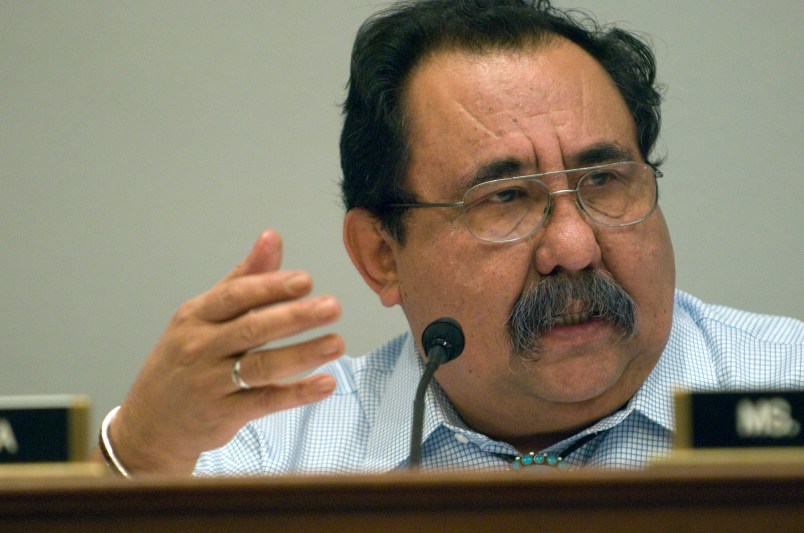Rep. Raúl M. Grijalva (D-AZ), the co-chairman of the House Progressive Caucus, released a statement today calling a reported compromise on the public option “troubling.”
Leaders “have already compromised far too much,” Grijalva said.
Ten Senate Democrats — five conservatives and five progressive — have been meeting to work out a compromise on the public option. One option on the table is to water down or remove the public option but allow some people between 55 and 65 buy into Medicare. Another is to lower the eligibility age altogether.
Here is the full text of Grijalva’s statement:
Rep. Raúl M. Grijalva today declared the widely reported compromises in the emerging Senate health care bill “troubling” and “not even reminiscent of a public option.”
Senate and White House leaders, he said, “have already compromised far too much. At some point in this process, the question became not what was the best policy for the American people, but what could be done to appease a recalcitrant handful who have negotiated in bad faith. We need strong leadership so close to the finish line, not efforts to water down a bill to the breaking point in a misguided attempt to win votes that were never there.”
Grijalva said reports that the Senate is now moving toward the creation of a non-profit board to provide insurance, instead of an authentic public option, should “worry the millions of Americans who are counting on this bill to create affordable insurance and help them enjoy a fair marketplace.” He emphasized that the House has already rejected such an approach, which essentially mirrors the health co-ops dismissed by most analysts as ineffective.
“A non-public option without government support will not bring down prices, expand coverage or provide competition for private companies,” Grijalva said. “Voters will instantly recognize it as a whitewash of the problem we have spent the better part of this year trying to fix. They would be right to criticize any plan that fails to address their concerns, and they will be doubly right to reject this one.”
Building a national health co-op from scratch would be an “unruly and excessively time-consuming process,” Grijalva said. Such a plan “would forfeit the economic advantages – such as building on Medicare’s provider network – that would make a public insurance program competitive.”
Grijalva added that modeling a plan on the Federal Employees Health Benefits Program that exclusively offers private insurance plans, as the Senate is reportedly considering, is not equivalent to a public option. Similarly, lowering the age of Medicare eligibility by five or 10 years “does not create enough private sector competition, which we desperately need to benefit working families,” he said.
“We need a public option, period,” Grijalva said. “I cannot support a system that forces Americans to buy private insurance and then allows those companies to collect government subsidies without competition. Our final health care bill should be based on policy outcomes and the needs of consumers, and the direction the Senate is taking does not give me confidence.”






